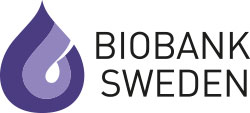Which samples are exemptions to the scope of the Act?
There are exemptions to the scope of the Act. Please note, that exempted samples fall under the Biobank Act if any conditions for the exemptions are not met or if the purpose is changed to one of the purposes covered by the Act.
The following exemptions exist:
- The Biobank Act does not apply on samples that are analysed within 9 months of sampling and destroyed immediately following analysis. Both conditions must be met for the exemption to apply.
- The Biobank Act does not apply to samples that are collected, stored, or used for transfusion, transplantation, insemination, or fertilisation outside the body, or to a sample, collected at transfusion or transplantation, that is stored for quality assurance purposes. In these cases, the handling and use of samples are regulated in other legislation.
- The Biobank Act does not apply to samples that have been substantially modified in the course of research or product manufacturing. In order for this exemption to apply, both of the following conditions must be met:
1) the sample donor must have been informed that the sample will be substantially modified and that it will no longer be covered by the Biobank Act, and
2) the sample donor has given his or her consent to such a modification.
If both conditions are not met, the samples are covered by the Biobank Act. - The Biobank Act does not apply to samples that have been anonymised. Consent is not required to anonymise samples. However, samples may not be anonymised in order to be used for purposes that a sample donor has opposed. The Biobank Act states that samples may not be anonymised to be used for purposes other than those to which the sample donor has consented to, i.e. anonymisation of samples may not take place in order to circumvent the requirements of the Biobank Act.



